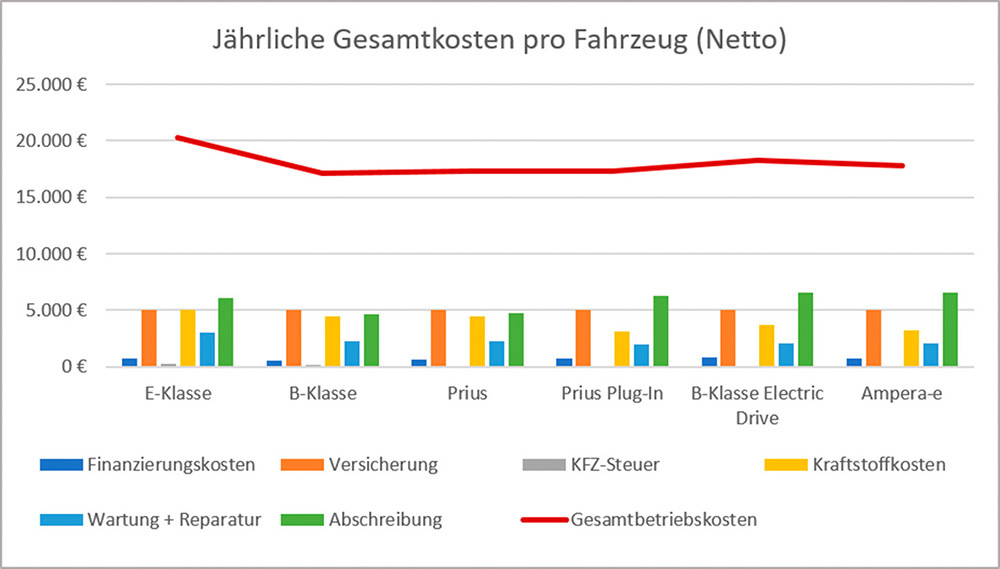Problem definition
About 95% of all taxis in Germany drive with a diesel engine. Traffic, especially diesel vehicles, is the main cause of air pollution (fine dust, nitrogen oxides) in inner cities that far exceeds the legal limits. The taxi industry would be particularly affected by the diesel driving bans that are actually necessary in downtown areas. For this reason, the city of Mainz is striving to convert Mainz's taxi fleet to alternative drive systems such as electric or hybrid vehicles. This raises the question of the economic impact on taxi companies.The annual total costs of vehicle models with alternative and conventional drives were compared under the typical conditions in the taxi industry in Mainz. The average distance driven by taxis here is 220 km per day. The proportion of short trips (up to 6 km) is 70%. Both criteria result in a good suitability of electric vehicles.The currently most popular models with diesel engines in the Mainz taxi market were determined in a random sample survey. At present, all the taxi drivers surveyed in Mainz drive with diesel engines and the typical vehicle models are the E- and B-Class from Mercedes-Benz. For the cost comparison, these two currently available vehicles are compared with electric and hybrid drives. In principle, it is possible to transfer the results to other other electric vehicles that are expected shortly in the same price segment.
Further information on the project can be found in the document available for downloading.
